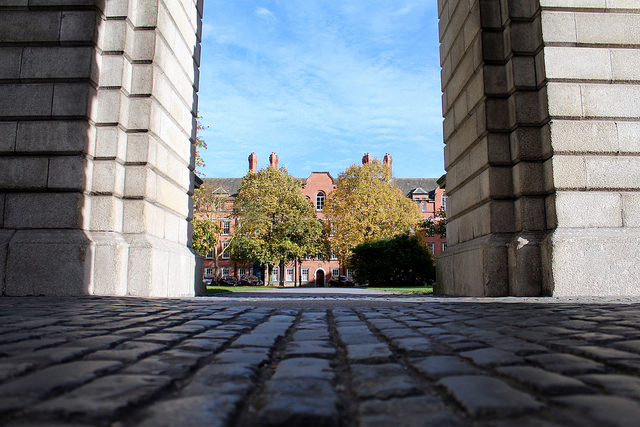Two weeks ago, at a talk at the Royal Irish Academy, Provost Patrick Prendergast asked something of a pointed question of the former Chief Executive of the Higher Education Authority (HEA), Tom Boland.
The question, asked in a room filled with university heads and senior academics, hit on a topic not many students ever pause to consider, but one that is currently at the forefront of much academic debate about higher education and the core role of universities in society.
Can the current state regulation of universities continue, Prendergast asked, when state funding has fallen to a point where over 50 per cent of Trinity’s funding comes from non-state sources. “Can we continue with current oversight model?”, he said.
This attitude explains, to a certain extent, why the Irish Universities Association (IUA) chose to argue for an income-contingent loan scheme when they appeared in front of the Oireachtas Education and Skills Committee two weeks ago. It wasn’t because the seven heads of Irish universities are ideologically opposed to the idea of free education. Nor was it because they want to limit the number of students from disadvantaged backgrounds entering higher education. Instead, it was quite likely that all seven heads fear state interference in how their institutions are run.
“If decreasing state funding is going to be the new normal, it should be accompanied by deregulation”
This protective attitude to university autonomy is not limited to university presidents. In April last year, Boland, then in charge of the HEA, was confronted with a roomful of academics in Trinity, debating the finer points of “enlightenment values” and higher education. That night, in a small room in the Arts Block in Trinity, different speakers warned that an avalanche of bureaucracy was threatening academic freedom. Prof Steve Hedley, a professor of law in University College Cork (UCC) got a round of applause for warning that “if our whole job is defined by the need to make Ireland wealthier, then we’re not really academic anymore”.
This gets to the heart of the IUA’s concern over a publicly funded education system. Such a system, it seems, would give the government the perfect excuse to exercise far-reaching regulatory control of what higher education institutions actually do. As Eoin O’Dell, an associate professor in the School of Law, has written in this newspaper, it is entirely fair to “render unto Caesar that which is Caesar’s by accepting the principle of Oireachtas control over Oireachtas money”.
Prendergast himself railed against excessive regulation during a recent address to staff to mark his half term as provost: “If decreasing state funding is going to be the new normal, it should be accompanied by deregulation.”
That night, in a small room in the Arts Block in Trinity, different speakers warned that an avalanche of bureaucracy was threatening academic freedom
Yet would an income-contingent loan system solve the thorny question of autonomy? Bahram Bekhradnia, Chair of the UK’s Higher Education Policy Institute, is sceptical. Speaking to The University Times, Bekhradnia said the idea that a loan system would provide greater autonomy is a “good theoretical point” but one that is not always borne out in practice. Bekhradnia is a former Director of Policy for the Higher Education Funding Council for England, which plays a similar regulatory role to the HEA. “I don’t think the level of funding necessarily determines how much influence the government will seek to bear”, he said.
Pointing to the UK higher education system, he said that even universities used to getting small proportions of their income from the government, such as postgraduate universities, are forced to abide by the same regulations and financial controls as other universities.
Indeed, in her annual Vice-Chancellor’s Oration, the Vice-Chancellor of the University of Oxford, Louise Richardson, devoted an entire part of her speech to the subject of regulation, calling on the government to “let universities get on with what universities do best”.
Despite having a funding model that, since 2010, has seen the government end direct payments to universities, debates around autonomy have continued to rage while the Conservative government has continued to develop a new legislative framework under a new higher education bill.
Autonomy, then, seems to lie with the government’s own ideological outlook, rather than any funding model. Such an attitude was echoed by Boland, who in his reply to Prendergast, also commended the “strong intellectual basis” to his question.
Yet, Boland warned, such ideas “don’t always win the day”.







